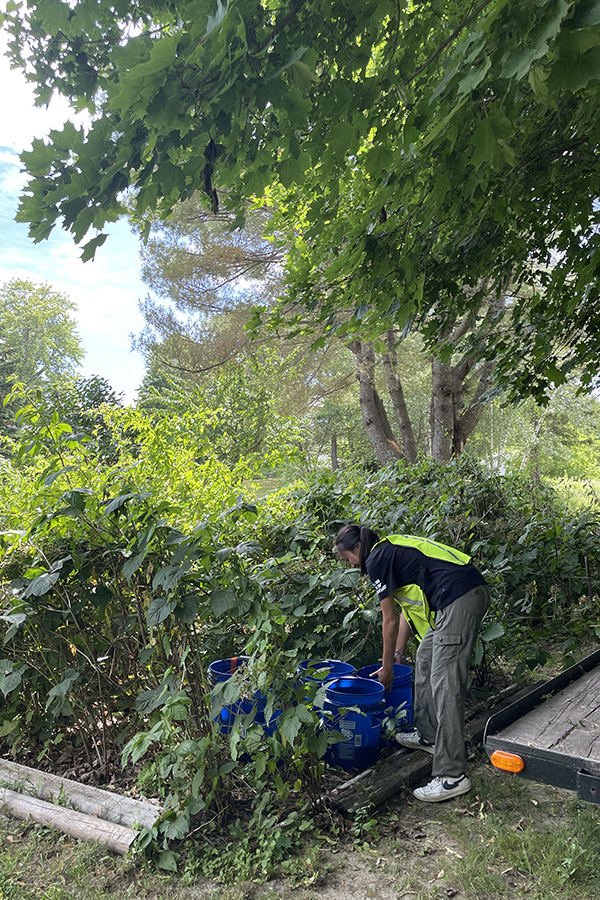The secret to mosquito control could potentially be found at Petsmart?
Written by Halle Evans, OneHealth REU program 2022 participant
Mosquitoes. The nuisance that never seems to go away. So, if given the opportunity, would you completely exterminate them? I asked a similar question to my mentor, Dr. Allison Gardner, during my first week of this program. Her answer? That mosquitoes, if possible, COULD and SHOULD be exterminated since their negative impacts outweigh any potential benefits. A grad student and the lab manager were also in this

discussion. Their answers differed. They said that mosquitoes do indeed provide useful roles and profoundly influence the biomass of many ecosystems, validating completely doing away with them. On top of this, complete extermination of mosquitoes is unfortunately fairly unrealistic. However, their presence can still be very detrimental as they can be disease vectors.
Hi! My name is Halle Evans! I’m a rising junior and Environmental Health Science major at the University of North Carolina at Chapel Hill. While I feel like I could ultimately live without mosquitoes, despite this, I am also interested in mosquito ecology as it pertains to public health issues. This being the interesting realm of vector borne and infectious diseases.
This summer, I’ve been working in Dr. Gardner’s Vector Biology Lab. My research project has focused on oviposition, or egg laying, preferences of two mosquito species, Culex pipiens and Culex restuans, who preferentially lay their eggs in artificial container habitats. On residential properties, these come in the form of bird baths, dog bowls, garbage cans, and any containers that could hold standing water. The big picture of this project revolves around the fact that these are West Nile Virus vector species making effective mosquito control methods essential. A popular concept in pest control is the idea of “Attract and Kill.” This involves pairing effective attractants with insecticides, eliminating disease vectors at their source.
Already, Dr. Gardner has given me a lot of freedom in formulating this research project. For this experiment, we decided to compare four treatment “attractants.” By mixing different materials in still standing water, interesting “infusions” can be made that are deemed tasty by mosquito standards. From known methods in the lab and through peer reviewed literature, we decided on grass, hay, yeast, and… rabbit food? I was so surprised when hearing about these seemingly random groups of materials that

almost seemed to be “common knowledge” in a very small world of mosquito-borne diseases. I wasn’t expecting that the possible “secret” to mosquito control methods could start out with supplies bought at Petsmart! On top of that, all of the supplies that I used in the field were easily attainable, everyday items. In the end, it’s about complex microbial relationships in leaf litter and non-living food sources, or “detritus,” that are crucial for mosquito larvae survivorship and development.
From my project and life in general, this summer has already been filled with lots of trial and error and a culmination of new experiences! In the lab and in the field I’ve found flexibility and consistent mentorship by the graduate students and other lab members. Then within the REU cohort, I’ve found an extremely fun and supportive environment filled with like-minded people who all just wonder how they really ended up in Orono, Maine. It’s been an amazing experience thus far and an opportunity that I definitely won’t forget. I’ll be forever thankful for the people I’ve met, the research opportunities I’ve been provided with, and the chance to explore the wonderful state of Maine.
